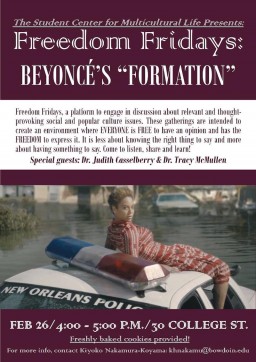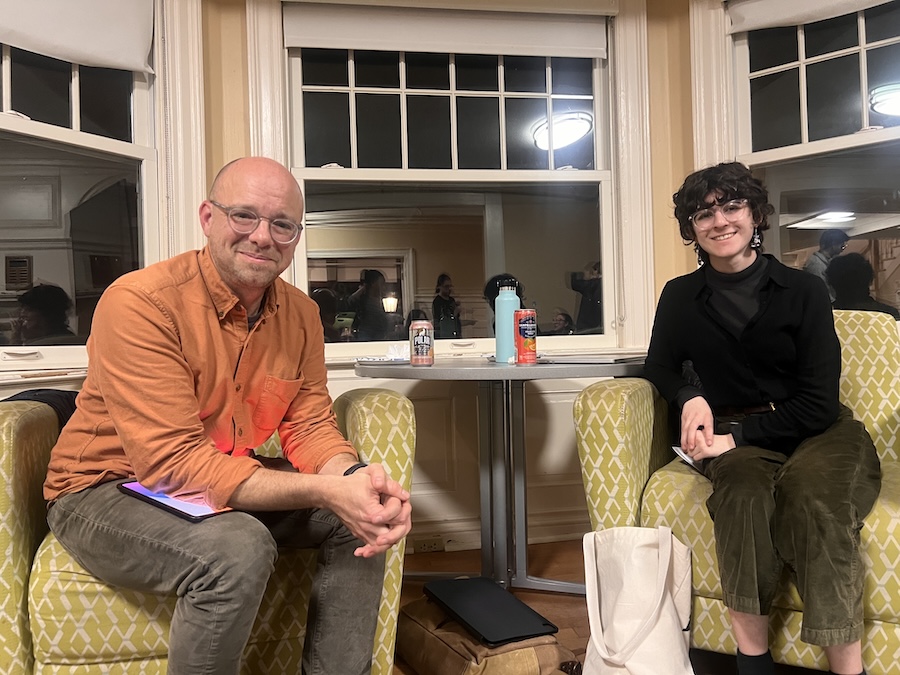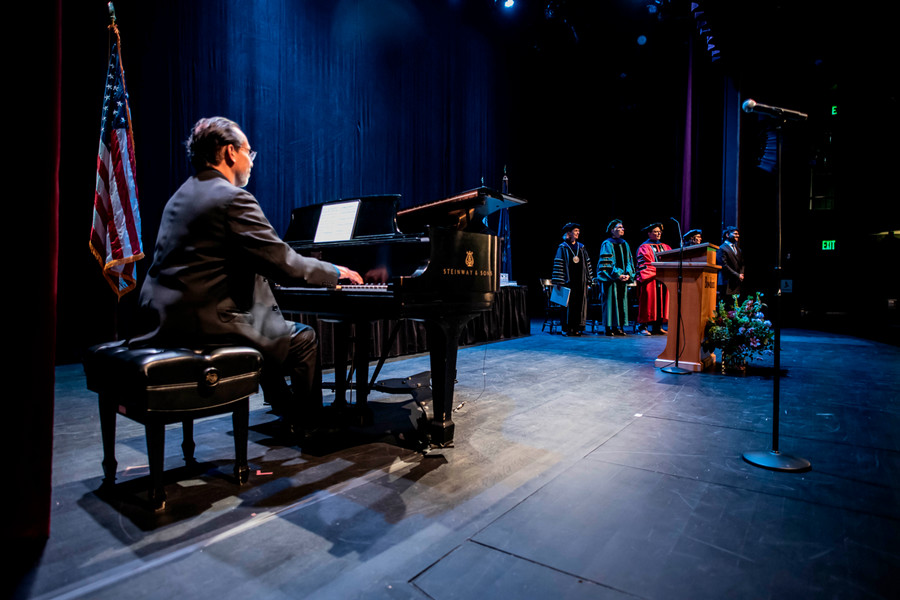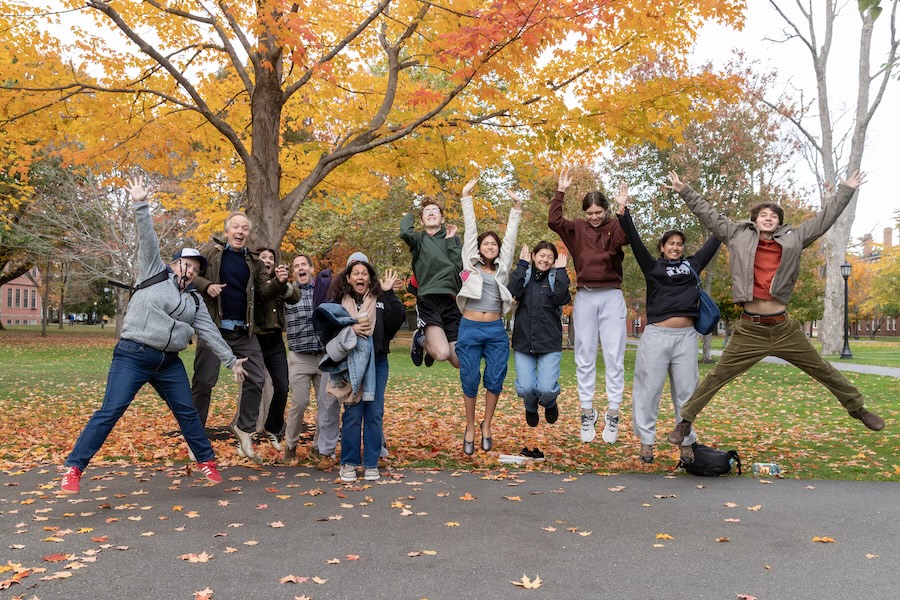Student Multicultural Center Starts Up 'Freedom Fridays'
By Rebecca Goldfine
Freedom Fridays is a new program at Bowdoin designed to spark interesting, informal discussions about popular culture and social issues. The first meeting began with a conversation about Beyoncé’s controversial song and video, “Formation.”
The single, which premiered at the Superbowl, has provoked much debate about the song’s message, Beyoncé’s presentation of it, and the more political direction the pop artist seems to be taking.
Benjamin Harris, director of the Student Center for Multicultural Life, said “Formation” was the perfect subject to launch Freedom Fridays because it is relevant to young people and it speaks to the current climate of race relations in the United States.
Kiyoko Nakamura-Koyama ’17, who helped organize the event, said the open discussion format “brings the community together to talk about things that matter.”
Harris started things off last Friday afternoon by saying that the intention of Freedom Fridays is to provide a relaxed space where everyone has a voice, “a space where people are free to express themselves.” A mix of students from different backgrounds, as well as staff and faculty, showed up for the event.

Before striking up the conversation, Nakamura-Koyama first showed the “Formation” video and then played the Saturday Night Live spoof that makes fun of white people who are shocked and horrified to discover Beyoncé is black.
Sewheat Asfaha ’16 was quick to put her finger on the reason why people have had a strong reaction to the song. “I think this is the first moment Beyoncé has said anything political that would cause controversy,” she noted. “It is the first time she is really embodying her blackness. The way she represents herself is very acceptable to white audiences, and she’s never remarked on race relations before. And physically she’s light-skinned and has blond hair.”
Erica Hummel ’16 observed that the public made a similar outcry when Beyoncé was perceived to have come out as a feminist. “She wouldn’t have gotten the mainstream support [earlier in her career] if she had been this black feminist character,” Hummel said. “I don’t think she would have achieved that mega-stardom that she has today. And now that she has all this power, it makes sense for her to divert it into causes she’s passionate about.”
One student remarked that he thought it was interesting how the words “unapologetic and political” kept coming in reference to “Formation.” A black woman is “expected to apologize for ruffling the status quo,” he said.
The conversation veered from analyzing the video to sharing personal anecdotes about being confronted with racist stereotypes. Students also spoke about mainstream expectations of minority groups, and they debated the pressures that are put upon artists of color to address issues related to their race.
Harris said that he would like to organize more Freedom Fridays that appeal to a broad range of students. Topics might include sexism, social class or immigration.
Freedom Fridays will hopefully bring students together so they can learn from one another, Harris continued. “We have different social circles,” he said, “and we don’t always hear people of contrasting views. We want to foster a better community for communication, so it’s not just social media rants or anonymous posts.”



